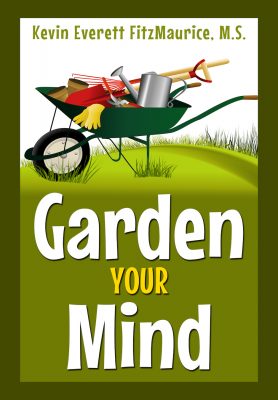Seven Pillars of Addiction Recovery
- Garbage Rules will prod you to face the self-defeating thinking that keeps you addicted.
- Ego will help you understand and overcome your addiction’s underlying problem.
Seven Pillars of Recovery for those in 12-Step Programs that you need to know. Recovery is challenging; therefore, use everything you can.
- Read and discover the best self-help system using CBT & REBT.
Seven Pillars of Addiction Recovery
1. SUPPORT GROUPS
- Attend support group meetings and talk about your struggles and triumphs in recovery.
Take It In
- Take hope and strength from the struggles and triumphs of group members.
- In other words, relate to and share with others.
- Expect to spend at least 3–5 years attending support groups regularly.
Things To Do
- This includes getting phone numbers of people to call when temptations become overwhelming.
- This includes developing healthy friends: those who work a good program.
- This includes having a homegroup you regularly attend that will check up on you if you are missing.
- This includes attending a variety of groups to get everything the program has to offer.
- This includes not using the support group for everything: “Do not put all your eggs in one basket.”
- This includes attending activities such as dances, dinners, and speaker’s meetings and trying out what the group offers.
Support Is Not Therapy
- Remember that a support group is not a therapy group to make this work.
- Remember that you do not have to agree with everything to make this work.
- As they say in AA, “Take what you want and leave the rest.”
- To make this work, remember that people who need recovery are usually people who are rigid in their thinking—therefore, they will likely still be rigid during their recovery.
- So practice the Serenity Prayer by focusing on controlling yourself, not others or life.
- Stay out of the disease vs. compulsion debate; instead, work your program.
- Read and discover the best self-help system using CBT & REBT.
Seven Pillars of Addiction Recovery
2. SPONSOR
- Have a sponsor who makes you work the steps from beginning to end and back again.
Sponsor Is Not a Counselor
- To make this work, remember that a sponsor is for help with the support program, not your counseling.
- Start with a temporary sponsor to determine if they are right for you without offending anyone.
- The rule of thumb is that a sponsor should have 3-5 years of solid recovery.
- Your sponsor is to help you work the program of the support group, not provide counseling.
- Your sponsor is to help you adjust to the culture of the support group, not run your life.
- Yes, a good sponsor will provide advice and support but not require you to follow it.
- Read and discover the best self-help system using CBT & REBT.
Seven Pillars of Addiction Recovery
3. ADVISOR
- Have a spiritual advisor who helps you to focus on the big picture and your long-term spiritual goals.
- This is the most dangerous choice you will make.
- Therefore, do not hurry it.
Spiritual Advisor
- To make this work, choose an advisor who encourages using support groups and counseling as part of your recovery.
- To make this work, remember that support groups lose much of their effectiveness when they become or act like religions or cults.
- To make this work, remember support groups are for support, not control of your spiritual life.
- Read and discover the best self-help system using CBT & REBT.
Seven Pillars of Addiction Recovery
4. SELF-CARE
- Take care to have a healthy diet, exercise, and sleep well.
Balance Your Life
- Take care to attend to your family and their needs.
- Take care to maintain good relations at work.
- Take care to either do the work you love or to love the work you do.
HALT Waring
“Don’t get too hungry, angry, lonely, or tired.” —AA saying
- Read and discover the best self-help system using CBT & REBT.
Seven Pillars of Addiction Recovery
5. TIME MANAGEMENT
Make Time For:
Alone time, counseling, education, family, friends, fun, helping others, humor, journaling, meditation, play, prayer, reading, relaxation, rest, self-care, sharing recovery, skill-building, and spiritual practices.
- Make your own list by adding to and subtracting from the above list.
- Read and discover the best self-help system using CBT & REBT.
Seven Pillars of Addiction Recovery
6. COUNSELOR
- Have a counselor who helps you learn the thinking, feeling, and behaving skills you need to be successful at home, school, work, and play.
- To make this work, choose a counselor who encourages your use of support groups and a spiritual advisor.
Some Parts
- This includes developing a relapse-prevention program with your counselor.
- This includes getting help with family relations, sexual relations, communication, or any area of distress for you.
- This includes developing and working towards long-term goals.
A Good Counselor
- A good counselor will continually monitor all of these seven areas with you.
- A good counselor will help you save your marriage if possible.
- A good counselor will offer advice when you need it and help you problem-solve for yourself when you can.
- A good counselor will help you motivate yourself to stay in recovery.
- A good counselor will be certified in Rational Emotive Behavior Therapy (REBT) or CBT.
- A good counselor will teach you to practice emotional responsibility.
- Read and discover the best self-help system using CBT & REBT.
Seven Pillars of Addiction Recovery
7. EMOTIONAL RESPONSIBILITY
- Develop and maintain emotional responsibility (ER).
- ER is the real key to recovery.
- If you practice ER, you will not blame and damn your way into acting out again.
- Blaming and damning yourself, others, or life is the first enemy of your recovery.
- Emotions are not an excuse when you understand how you choose them.
- To learn about emotional responsibility (ER), for 99¢, discover The Secret of Maturity, Third Edition.
- Read and discover the best self-help system using CBT & REBT.
Seven Pillars of Addiction Recovery
Quotations Various Sources
Listed Alphabetically
“And he said unto his disciples, Therefore I say unto you, Take no thought for your life, what ye shall eat; neither for the body, what ye shall put on.” —Luke 12:22
“Believe in recovery, redemption, and rehabilitation, especially when the world wants to punish you instead of to help you.” —Kevin Everett FitzMaurice
“Correct it or accept it.” —Kevin Everett FitzMaurice
“Detach with love.” —Al-Anon
“Even though a number of people have tried, no one has yet found a way to drink for a living.” —Jean Kerr
“Flow with whatever may happen and let your mind be free. Stay centered by accepting whatever you are doing.” —Chuang-Tzu
“God grant me the serenity to accept the people I cannot change, the courage to change the one I can, and the wisdom to know it’s me.” —Anonymous
“Guilt is really the reverse side of the coin of pride. Guilt aims at self-destruction, and pride aims at the destruction of others.” —Bill W., As Bill Sees It, p. 140
“I didn’t cause it. I can’t change it. I can’t control it.” —Al-Anon
“I’ve developed a new philosophy–I only dread one day at a time.” —Charlie Brown
“Recovery does not take care of itself no matter how old it is.” —Kevin Everett FitzMaurice
“Recovery is the process of recovering who you were as a child.” —Kevin Everett FitzMaurice
“Recovery requires conquering the seven-headed dragon: physical, mental, emotional, social, motivational, renewal, spiritual.” —Kevin Everett FitzMaurice
“Resolve to be thyself; and know that he who finds himself, loses his misery.” —Matthew Arnold
“Suffering isn’t ennobling, recovery is.” —Christian Barnard
“Take therefore no thought for the morrow: for the morrow shall take thought for the things of itself. Sufficient unto the day is the evil thereof.” —Matthew 6:34
“The AA program can be summed up in two words: acceptance and surrender.” —Kevin Everett FitzMaurice
“The attitude of unconditional self-acceptance is probably the most important variable in their long-term recovery.” —Albert Ellis, Rational-Emotive Therapy with Alcoholics and Substance Abusers, p. 71
“The best way to cheer yourself is to try to cheer somebody else up.” —Mark Twain
“Therefore I say unto you, Take no thought for your life, what ye shall eat, or what ye shall drink; nor yet for your body, what ye shall put on. Is not the life more than meat, and the body than raiment?” —Matthew 6:25
“Those who are free of resentful thoughts surely find peace.” —Buddha
“You have to accept whatever comes, and the only important thing is that you meet it with courage and with the best that you have to give.” —Eleanor Roosevelt
- Read and discover the best self-help system using CBT & REBT.
Seven Pillars of Addiction Recovery
Related Pages of Free Information
- 3 Steps of Relapse Prevention
- Cause of Addiction
- Coping Skills: Free Help
- Exercises & Techniques: List Pages
- Garden Your Mind to Keep it Healthy (3Rs)
- How to Quit in 5 Steps
- Recovery Issues: Free Help
- Read for the best understanding of how crazy your thinking can make you.
- Read and discover the best self-help system using CBT & REBT.
- Read and master the life skill of acceptance using the best combination of CBT, REBT, & Stoicism.
Seven Pillars of Addiction Recovery
6 Groups of Topics Menu
- 1. Pages by Topic
- 2. Fast-Facts by Topic
- 3. Quotations by Topic
- 4. Poems by Topic
- 5. Scripture by Topic
- 6. Websites by Topic
- Read and discover how CBT, REBT, & Stoicism evolved into one system: STPHFR.
- Read and discover the world’s best breathing exercise for centering and peace of mind.
Seven Pillars of Addiction Recovery
10 Skills & Topics Menu
- 1. Coping Skills & Topics
- 2. Problem-Solving Skills & Topics
- 3. Communication Skills & Topics
- 4. Recovery Skills & Topics
- 5. Anger Skills & Topics
- 6. Blame Skills & Topics
- 7. Thinking Skills & Topics
- 8. Responsibility Skills & Topics
- 9. Counseling Skills & Topics
- 10. Praying Skills & Topics
- Read and discover how CBT, REBT, & Stoicism evolved into one system: STPHFR.
- Read and discover the world’s best breathing exercise for centering and peace of mind.




